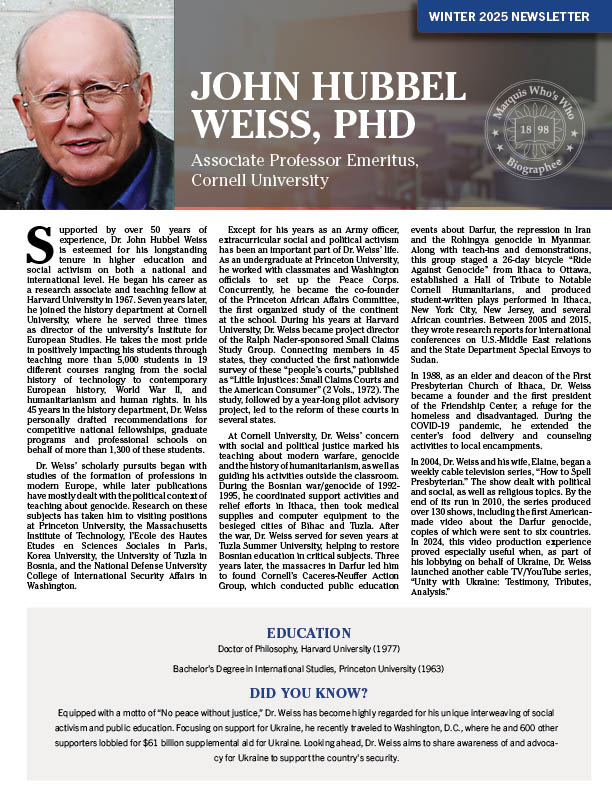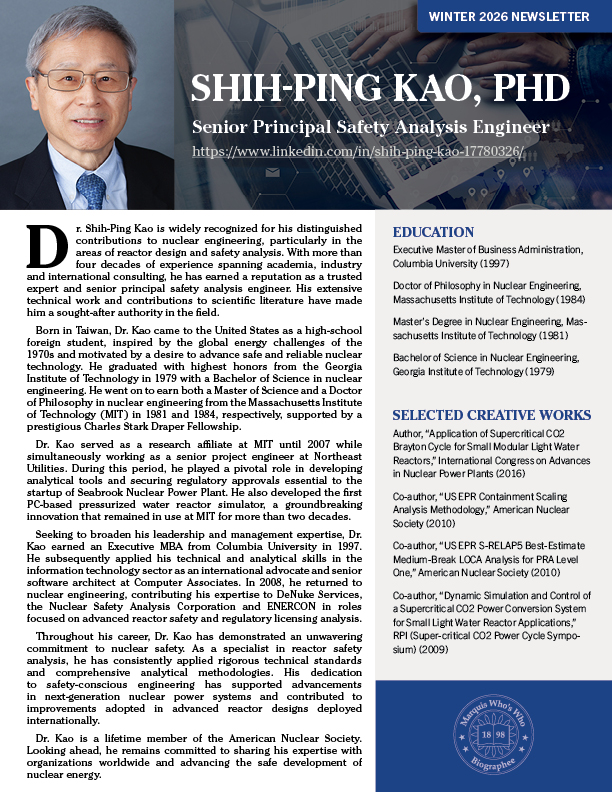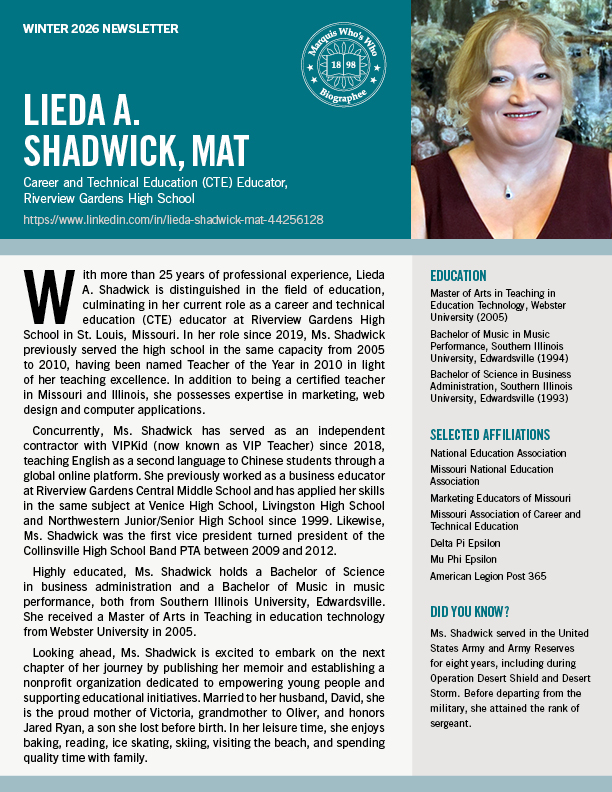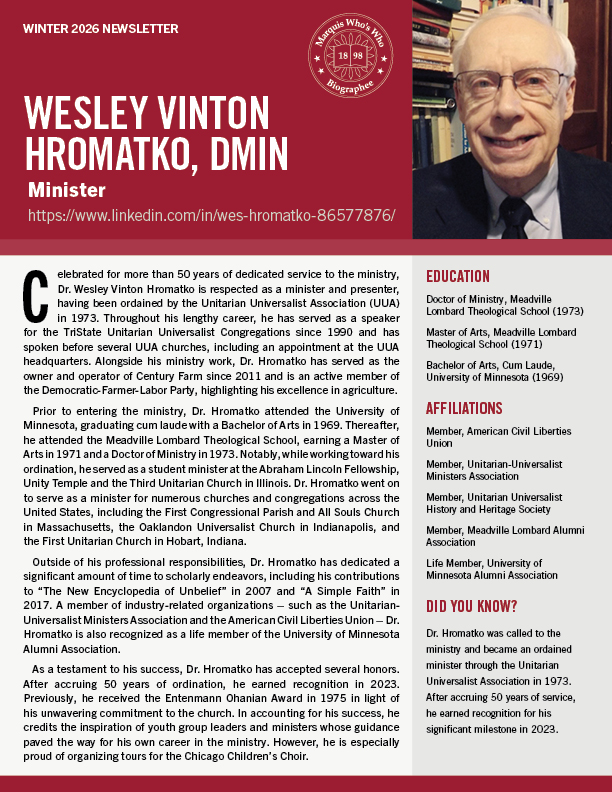
Supported by over 50 years of experience, Dr. John Hubbel Weiss is esteemed for his longstanding tenure in higher education and social activism on both a national and international level. He began his career as a research associate and teaching fellow at Harvard University in 1967. Seven years later, he joined the history department at Cornell University, where he served three times as director of the university’s Institute for European Studies. He takes the most pride in positively impacting his students through teaching more than 5,000 students in 19 different courses ranging from the social history of technology to contemporary European history, World War II, and humanitarianism and human rights. In his 45 years in the history department, Dr. Weiss personally drafted recommendations for competitive national fellowships, graduate programs and professional schools on behalf of more than 1,300 of these students.
Dr. Weiss’ scholarly pursuits began with studies of the formation of professions in modern Europe, while later publications have mostly dealt with the political context of teaching about genocide. Research on these subjects has taken him to visiting positions at Princeton University, the Massachusetts Institute of Technology, l’Ecole des Hautes Etudes en Sciences Sociales in Paris, Korea University, the University of Tuzla in Bosnia, and the National Defense University College of International Security Affairs in Washington.
Except for his years as an Army officer, extracurricular social and political activism has been an important part of Dr. Weiss’ life. As an undergraduate at Princeton University, he worked with classmates and Washington officials to set up the Peace Corps. Concurrently, he became the co-founder of the Princeton African Affairs Committee, the first organized study of the continent at the school. During his years at Harvard University, Dr. Weiss became project director of the Ralph Nader-sponsored Small Claims Study Group. Connecting members in 45 states, they conducted the first nationwide survey of these “people’s courts,” published as “Little Injustices: Small Claims Courts and the American Consumer” (2 Vols., 1972). The study, followed by a year-long pilot advisory project, led to the reform of these courts in several states.
At Cornell University, Dr. Weiss’ concern with social and political justice marked his teaching about modern warfare, genocide and the history of humanitarianism, as well as guiding his activities outside the classroom. During the Bosnian war/genocide of 1992-1995, he coordinated support activities and relief efforts in Ithaca, then took medical supplies and computer equipment to the besieged cities of Bihac and Tuzla. After the war, Dr. Weiss served for seven years at Tuzla Summer University, helping to restore Bosnian education in critical subjects. Three years later, the massacres in Darfur led him to found Cornell’s Caceres-Neuffer Action Group, which conducted public education events about Darfur, the repression in Iran and the Rohingya genocide in Myanmar. Along with teach-ins and demonstrations, this group staged a 26-day bicycle “Ride Against Genocide” from Ithaca to Ottawa, established a Hall of Tribute to Notable Cornell Humanitarians, and produced student-written plays performed in Ithaca, New York City, New Jersey, and several African countries. Between 2005 and 2015, they wrote research reports for international conferences on U.S.-Middle East relations and the State Department Special Envoys to Sudan.
In 1988, as an elder and deacon of the First Presbyterian Church of Ithaca, Dr. Weiss became a founder and the first president of the Friendship Center, a refuge for the homeless and disadvantaged. During the COVID-19 pandemic, he extended the center’s food delivery and counseling activities to local encampments.
In 2004, Dr. Weiss and his wife, Elaine, began a weekly cable television series, “How to Spell Presbyterian.” The show dealt with political and social, as well as religious topics. By the end of its run in 2010, the series produced over 130 shows, including the first American-made video about the Darfur genocide, copies of which were sent to six countries. In 2024, this video production experience proved especially useful when, as part of his lobbying on behalf of Ukraine, Dr. Weiss launched another cable TV/YouTube series, “Unity with Ukraine: Testimony, Tributes, Analysis.”


